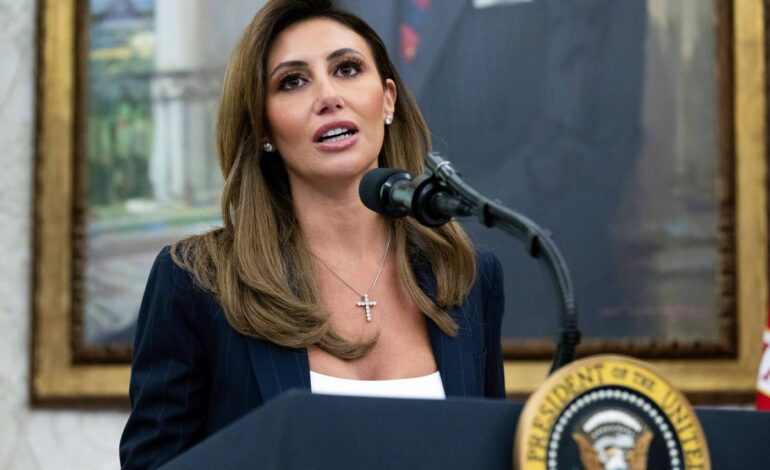Federal Judge Rules Alina Habba’s Appointment Unlawful in New Jersey

A federal judge has declared that Alina Habba, a former attorney for Donald Trump, unlawfully occupied the position of U.S. attorney for New Jersey for over a month and a half. This ruling comes after a panel of federal judges rejected her permanent appointment, highlighting significant concerns regarding the legitimacy of her role and the implications for the judicial system in the state.
The judge’s decision underscores a troubling pattern in the Trump administration’s approach to judicial appointments. Habba, who previously represented Trump during a politically tumultuous period, was selected for her loyalty rather than her qualifications. The appointment bypassed the customary Senate confirmation process, raising questions about the integrity of such a vital position within the U.S. legal framework.
Despite being removed by judicial authority, the administration engaged in what appears to be procedural manipulation to reinstate Habba. This maneuvering included firing the acting head of the office and reappointing her, an action that disregarded the checks and balances meant to govern such appointments. As a result, the U.S. attorney’s office in New Jersey faced operational disruptions, including canceled plea hearings and grand jury sessions, which are critical for maintaining public safety and judicial efficiency.
The insistence on placing a loyalist in this powerful role has not only been deemed improper but has also negatively impacted the functioning of the office. Prosecutorial responsibilities have stalled, leading to criticism of the administration’s priorities. The Senate, despite its narrow Republican majority, has shown a willingness to confirm Trump nominees, yet the lack of effort to secure Habba’s confirmation suggests a recognition of her inadequacies for the role.
This ruling also serves as a cautionary tale for John A. Sarcone III, who is purportedly serving as the interim U.S. attorney for the Northern District of New York. His continued appointment faces similar scrutiny as a panel of judges previously rejected his position. The administration’s attempts to keep him in office through procedural means could render his appointment equally unlawful.
In New York City, the implications of Trump’s judicial decisions have also led to instability. Several prosecutors have left, including former interim U.S. Attorney Danielle Sassoon, after the Justice Department directed them to drop charges against Mayor Adams. This situation has been criticized as a potential quid pro quo deal that would benefit Trump in exchange for the mayor’s support on immigration issues.
While there have been instances where judicial panels have approved interim appointments, such as Jay Clayton, the ongoing turmoil suggests that a more qualified selection process is necessary. Experts argue that the administration might experience fewer challenges securing judicial confirmations if it focused on candidates with proven expertise rather than those selected for their political loyalty.
In light of these recent developments, it is clear that the controversy surrounding Alina Habba’s appointment reflects broader issues within the judicial appointments process. Moving forward, a commitment to upholding constitutional procedures and prioritizing qualifications over loyalty could restore trust in the integrity of the U.S. judicial system.






